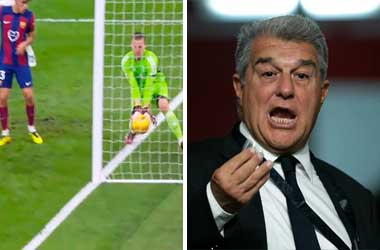 Connecticut Governor Dannel Malloy told reporters on August 02 that his administration may soon have a proposal for legislative consideration that would create a new system for the managing and profiting from regulated sports betting.
Connecticut Governor Dannel Malloy told reporters on August 02 that his administration may soon have a proposal for legislative consideration that would create a new system for the managing and profiting from regulated sports betting.
With the legislature not scheduled to be back in session until January 2019, it is uncertain whether or not a special session will be called.
Malloy, who will be leaving office in January, told legislative leaders about his recent discussions with Connecticut’s tribal casinos and other stakeholders. He asked lawmakers to let him know within a week if they would prefer to work with him on a resolution or let his successor deal with it.
WTNH News8
Following a closed-door meeting, Malloy said that there has been real action taking place on the topic over the past few weeks and he feels that they are getting close to agreeing on who could legally operate in the state and how they would be allowed to do it.
Leaders have not revealed what the next step will be but they confirmed that intense discussions will continue and they are seeking consultation from lawmakers. Senate President Pro Tem Martin Looney, D-New Haven, said that the idea of calling for a special session to address expanded gambling is largely contingent on the result of the negotiation process. The challenges that confront Connecticut’s bid to legalize sports gambling are a little more complicated than they are in other states.
Federal Bureau of Indian Affairs Must Give Approval
For instance, Connecticut made an agreement with tribal casinos in the southeastern portion of the state 1992 in which the state would receive 25% of video slot revenues. In exchange, the tribal casinos were given exclusive rights to casino gambling. If Connecticut was to legalize sports betting then the tribes would be allowed to open up their own sports betting operations. Malloy also pointed out the need to clarify whether or not sports betting should be classified as a form of casino gambling.
It is estimated that the state stands to gain anywhere from $40 million up to $80 million annually if they impose fees on sports gambling. Malloy has stated that he is looking at the gambling industry as a whole and not just the revenue. He also pointed out that any new deals involving sports betting would need the approval of the Federal Bureau of Indian Affairs which would have 90 days to consider a new system of sports betting management.

 United States
United States United Kingdom
United Kingdom












